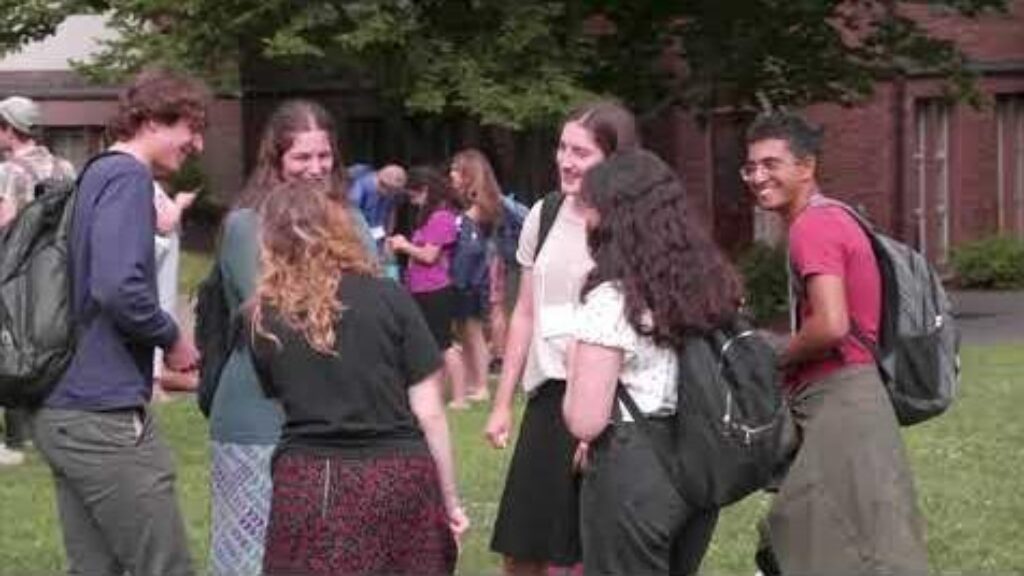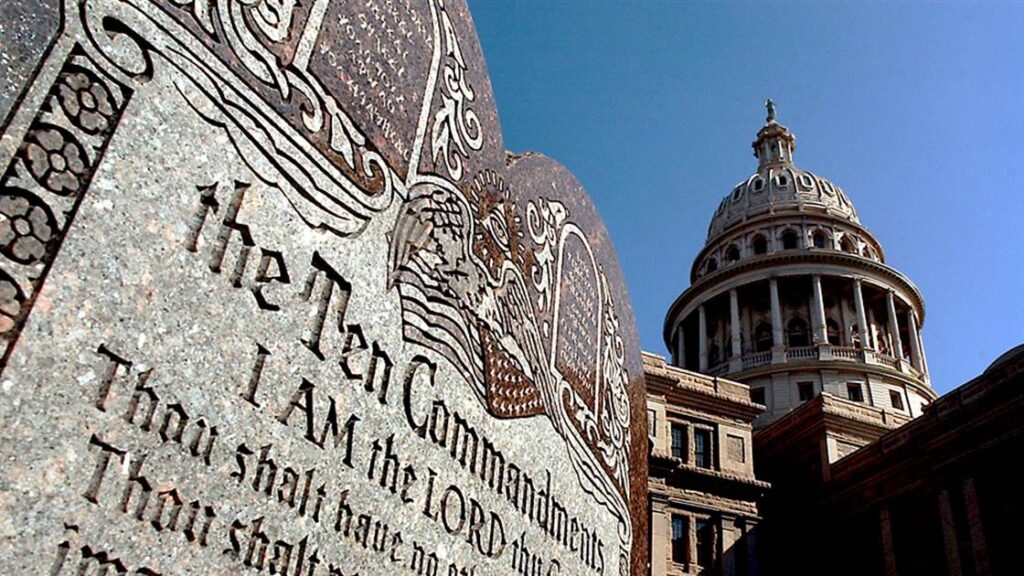The Dangerous Descent of American Free Speech
Ella Cohen, Solomon Fellowship Class of 2023
In the modern age of the messianic STEM complex, the sciences tend to be viewed as an unflappable bastion of truth and progress, free of any of the pesky emotional prejudices and societal constraints that can cloud other spheres of study and life.
This conclusion has continually been proven false in recent years, but never with more starkly depressing irony than in the case of the Massachusetts Institute of Technology (MIT) and their “campus witch hunts,” as described by University of Chicago Professor Dorian Abbot. Abbot, recruited by MIT
last fall to give the prestigious Carlson Lecture on new advances in planetary climate science, found himself under fire from activists and alumni alike in an effort to thwart his lecture, or in today’s terms, “cancel” him. This attack was prompted solely by an opinion piece in Newsweek that Abbot co-wrote which critiqued diversity, equity, and inclusion standards within universities. Abbot criticized the strategy of rewarding minority individuals based on their groups’ “threatened” status rather than actual individual merit, claiming that it counterproductively “treats persons as merely means to an end, giving primacy to a statistic over the individuality of a human being.” Under mounting pressure, the department chair at MIT capitulated to the demands of the mob and opted to cancel the lecture.
If not for some late out-of-left-field assistance, this story would have ended here: with Professor Abbot stripped of his invitation, the MIT community deprived of this opportunity for scientific learning from a distinguished professor, and the American institution of free speech left with yet another embarrassing black eye. Luckily, the conference—and any semblance of a regard for the sciences within the American academy—was saved when Robert P. George, tenured professor of political science at Princeton and director of the James Madison Program, stepped up to offer Princeton as a host for that very same lecture Abbot had intended to deliver at MIT.
Abbot delivered his original lecture at Princeton through a virtual public webinar, which was a rousing success, with thousands tuning in to the notedly unpolitical presentation. George fittingly gave both the introductory and closing remarks, in which he stated that the larger goal of the sciences is to seek truth, and stressed the vital importance of free thought, debate, and collaboration in service to the continued advancement of technology and innovation.
George’s conduct in battling this academic injustice is only to be commended, but these circumstances speak to a far graver national environment. This country was founded on the idea that free and open dialogue is essential to a free, just, and successful political enterprise. In order to continue America’s legacy of giving a voice to the downtrodden and power to the people, we must be able to pitch, probe, and pick apart any idea that comes before us. A democratic republic that continues to move favorably towards the idea that only minority parties can comment on certain issues, which change seemingly daily, is not a republic built in the vision of universal freedom and equality our Founders laid out. This abandonment of our oldest principles has led to a state of affairs in which anyone can be removed from social media for their political beliefs, researchers put sexuality tolerance guidelines over scientific findings, and teachers who attempt to uphold their religious beliefs fear for their very employment. This devolution has created a culture in which proven facts are systematically oppressed in favor of upholding the doctrine of good feelings for all.
In the current screen age, the values of lazy thought assimilation and mindless rage govern conversation. In modern American society, far more people get their news through Twitter than from reading the newspaper, or any other verifiable source. Sincere discourse on complex issues guided by facts has taken a backseat to the mob mentality of “loudest voice wins,” which steers even the highest and most respected offices. This is illustrated most clearly in the conduct of former President Trump, who had a horrifying average of over 30 tweets per day during the last six months of his presidency, and seemingly viewed that platform as his most significant outlet to communicate with the nation he was elected to govern. But it is not just the former president who has utilized this strategy. On the whole, Americans now watch Instagram reels rather than tune into important debates and mindlessly retweet the rants of angry protestors rather than read articles. And perhaps most worrisome, our fellow citizens burn down buildings rather than have rational and coherent discussions on issues of social justice.
This nation-wide laissez-faire—or conversely, dangerously irrational— approach to issues meriting serious debate is distressing, especially as many establishments crack down on free thought and speech, from college harassment policies and religious education to social media guidelines. So, can anything be done to turn the tide on this misinformation and ideological abuse?
While the efforts of courageous and clear-minded individuals like Professors George and Abbot should be supported and commended, it is becoming apparent that individual pushback against infringement on free speech is not enough. The only lasting success against this regime of suppression will be found in the efforts of our most courageous and steadfast institutions. Publications such as Commentary Magazine that foster conversation on high-level topics critical to the future of the West must be engaged with and disseminated. Programs that aid in the careful shaping and education of future generations of leaders and writers, educators and lawmakers, must be promoted. Most importantly, institutions critical to Jewish education and engagement in America, like Yeshiva University, which has been brave enough to fight for its religious rights and status as an establishment governed by tradition, must be supported wholeheartedly. If we who cherish and believe in free speech are to gain any traction in the current culture, we must aid and promote the growth and assistance of the very institutions that are fighting tirelessly to turn the national conversation from one of blatant hostility and noisy ignorance to freethinking, open, and educated debate.
There must be unified and decisive institutional action taken in this fight against individual liberties—or it will be more than our ability to publicly criticize at risk. The entire future of the freethinking American experiment our Founders set in motion and fought to preserve that is at stake.
Ms. Ella Cohen is a senior at SAR High School in Riverdale. She resides in White Plains, New York.
Suggested Reading

A New Viewpoint on Diversity
Often, it seems that the people who talk about diversity never visit diverse communities. People seem to think that diversity is based on how one looks. True diversity is not about how someone looks, but how they act.

The Tanakh Roots of Core American Values
To many, what constitutes American values is obvious: private property, civil liberties, the rule of law, and political equality, to name a few. But these values are hardly exclusively American. In fact, these notions are often the extension of ideas first found directly in the Tanakh.

“Judge Your Kin Fairly”: The Jewish Response to Cancel Culture
The internet leaves people free to judge and shame others without remorse. Should Jews take part in this culture of shame, or would Jewish tradition say this is taking accountability too far?

Jewish Resilience: Taught By Our Tradition and Tested By Our History
BY ADIN LINDEN The over three thousand years of Jewish history has often been uneasy and tumultuous. Crisis has never been too far from the Jewish people. At times, those…